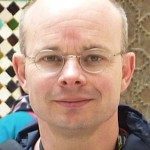Lien vers Pubmed [PMID] – 30299888
Eur. J. Endocrinol. 2018 10;179(4):R197-R206
The differential diagnosis of differences or disorders of sex development (DSD) belongs to the most complex fields in medicine. It requires a multidisciplinary team conducting a synoptic and complementary approach consisting of thorough clinical, hormonal and genetic workups. This position paper of EU COST (European Cooperation in Science and Technology) Action BM1303 ‘DSDnet’ was written by leading experts in the field and focuses on current best practice in genetic diagnosis in DSD patients. Ascertainment of the karyotpye defines one of the three major diagnostic DSD subclasses and is therefore the mandatory initial step. Subsequently, further analyses comprise molecular studies of monogenic DSD causes or analysis of copy number variations (CNV) or both. Panels of candidate genes provide rapid and reliable results. Whole exome and genome sequencing (WES and WGS) represent valuable methodological developments that are currently in the transition from basic science to clinical routine service in the field of DSD. However, in addition to covering known DSD candidate genes, WES and WGS help to identify novel genetic causes for DSD. Diagnostic interpretation must be performed with utmost caution and needs careful scientific validation in each DSD case.


